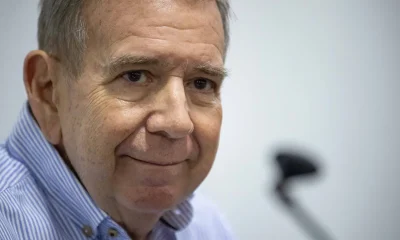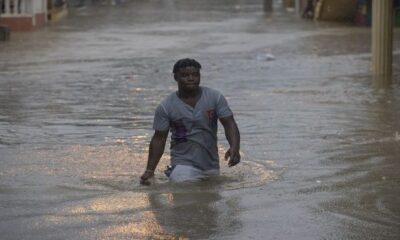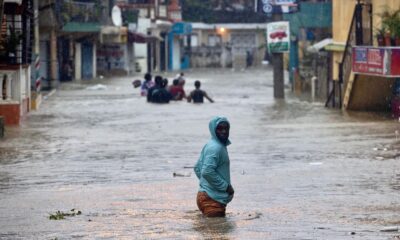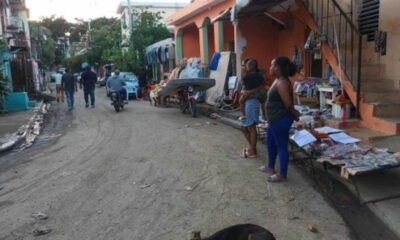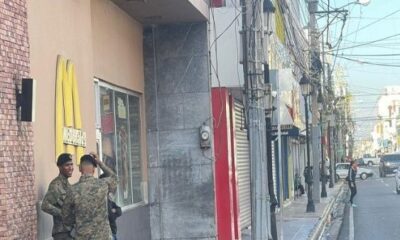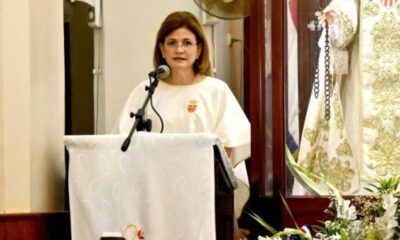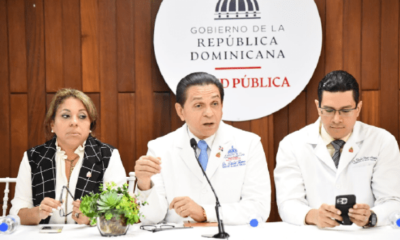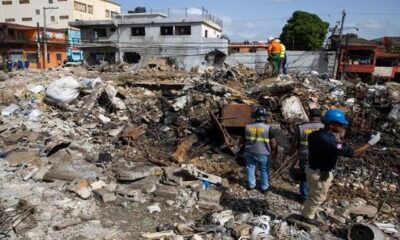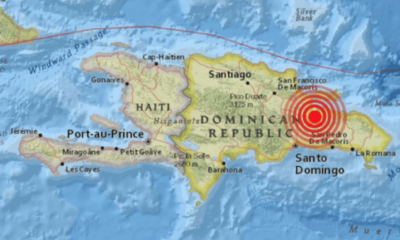International
The border market with the Dominican Republic, Haitians’ solution to stock up
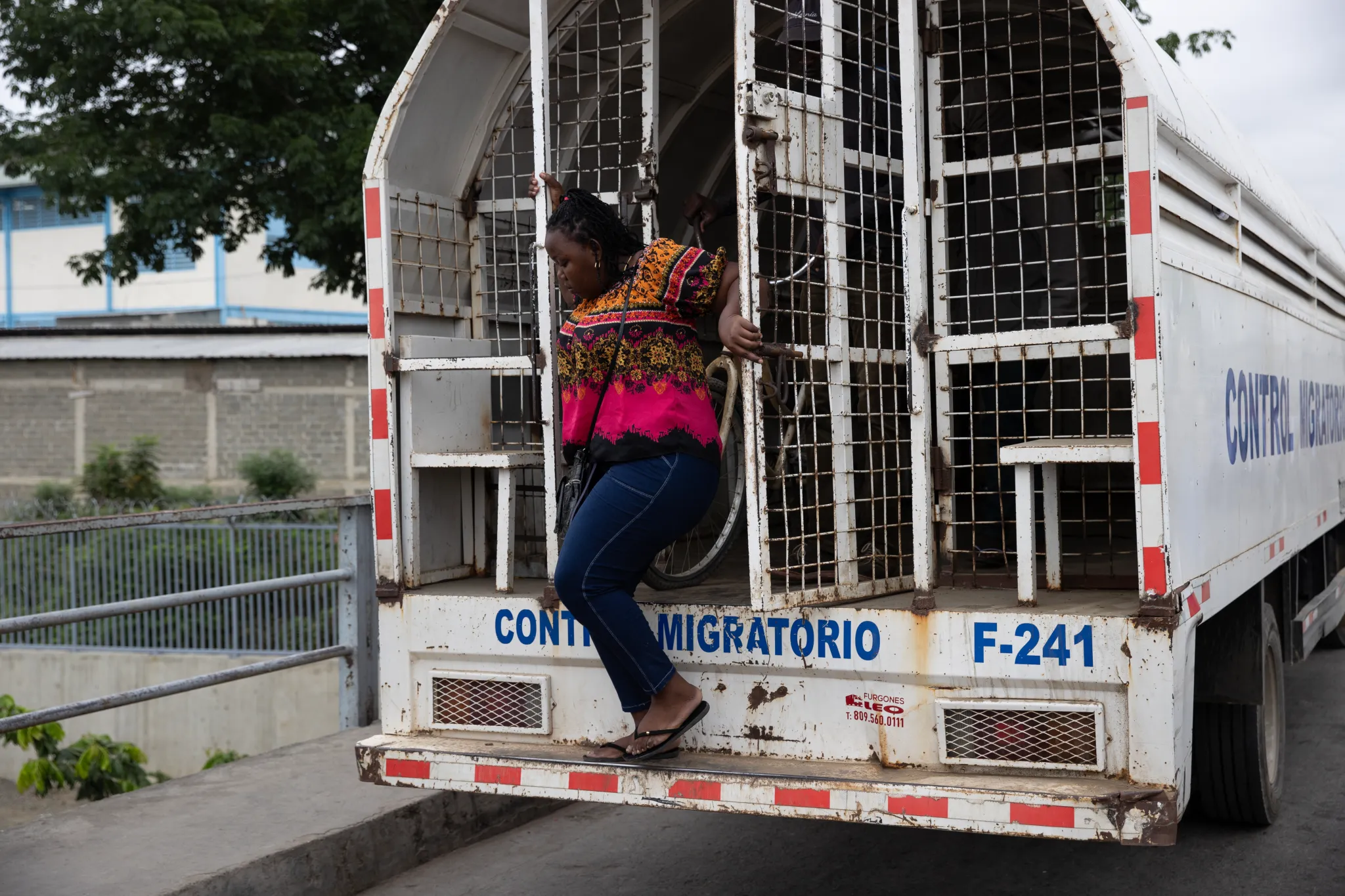
On Mondays and Fridays, when the binational market of Dajabón (northwest of the Dominican Republic) officially operates, thousands of Haitians crowd at the border to cross the neighboring country and stock up on items that are scarce in their territory and also to sell their products.
This Monday is no exception. At 8 o’clock in the morning and under the strong surveillance of the Specialized Border Security Corps (Cesfront) and the intelligence services, the Dominican Republic opens the border gate. On the other hand, thousands of Haitians, mainly women, have been waiting since the early hours of the morning for the binational market to begin.
A Cesfront official tells EFE that on Mondays and Fridays about 35,000 Haitians can cross the gate, many of whom come in search of food products such as bananas, eggs, salami, rice and flour, due to the deep crisis that their country is experiencing and insecurity.
According to the Food Organization of the United Nations (FAO), the lack of food leads to almost half of the Haitian population, that is, 4.97 million people out of a total of 11 million, facing acute food insecurity and, of these, 1.64 million are in phase 4 of emergency of the Integrated Classification of Food Security Phases (CIF).
But Haitians don’t just come to buy, others come to offer their products. This is the case of Archibald Wilfred, 45, a resident of the Haitian town of Ouanaminthe (just a few meters from the border) and who for six years has had a food products position in the binational market.
“Now I sell much more food than before because, unfortunately, there is not much food there. There is very little food and there is no money anymore,” he tells EFE Archibald, whose customers are mainly merchants from various cities in Haiti, even the capital, who later resell the merchandise.
When asked about his opinion about the deployment of a foreign mission in his country, Archibald considers that “the arrival of troops is 50 percent of the solution. If they arrive it will be good because people expect to have security and with them the gangs will end,” he confides.
Meanwhile, on the other side of the border, many Haitian policemen try to put order and separate into groups the thousands of people who are waiting to reach the border bridge in a relatively orderly manner, before entering the Dominican side.
Despite police efforts, on several occasions the situation becomes chaotic because many want to be the first to cross, which causes pushes, blows and falls.
In Dajabón, the Dominican authorities proceed to take the biometric data of the thousands of people who enter, as a way to control entry into the country.
Already inside the binational market, there are thousands of people who move in an unstoppable tingling, between shouting and pushing, buying and selling all kinds of products, mainly food, as can be seen in the long line of wheelbrows, ‘tricycles’ and packages on the heads of women returning to Haiti.
Through the border, not only do sellers and buyers enter and leave. Half an hour after the border gate is opened, the first truck of the Dominican Directorate General of Migration arrives that transports dozens of Haitians deported from the country.
María, a young woman of about 30 years old, gets off “the truck,” crying and trembling: “I have lived all my life in Dajabón, but my mother never did the papers for me,” she says.
“I went out to buy something and migration got me into the truck. I don’t know what I’m going to do now,” he adds, as he walks slowly towards Ouanaminthe.
And it’s not the only truck. Throughout the day, there are several who arrive with people who are expelled, a policy that continues despite the calls of the UN and human rights organizations to cease deportations from the Dominican Republic in the face of violence and the critical situation in Haiti.
Central America
Senator Van Hollen Meets with Deported MS-13 Member in El Salvador; Trump and Bukele React

U.S. Democratic Senator Chris Van Hollen, representing the state of Maryland, held a meeting in El Salvador with deported MS-13 gang member Kilmar Ábrego García, a member of the criminal group classified by the U.S. government as a terrorist organization.
“Kilmar Ábrego García, miraculously resurrected from the ‘extermination camps’ and ‘torture chambers,’ now sipping margaritas with Senator Van Hollen in the tropical paradise of El Salvador!” wrote President Nayib Bukeleon X (formerly Twitter), sharing photos of Van Hollen, Ábrego García, and a lawyer sitting together at a Salvadoran hotel.
The deported gang member is seen wearing a plaid shirt and a flat-brimmed cap, seated at a table with glasses and coffee cups. The senator also shared images of the meeting on his own social media accounts.
Bukele reaffirmed that Ábrego will remain in El Salvador and will not be returned to the United States.
“Now that his health has been confirmed, he has earned the honor of remaining under the custody of El Salvador,” Bukele added.
Former U.S. President Donald Trump criticized the senator’s meeting with Ábrego on Truth Social, calling Van Hollen “a fool” for advocating for Ábrego’s return to the U.S.
International
Pope Francis Appears for Easter Blessing, Calls for Peace and Religious Freedom

Pope Francis, still recovering from pneumonia, appeared on the balcony of St. Peter’s Basilica in the Vatican on Easter Sunday and, with a faint voice, wished a “Happy Easter” to the thousands of faithful gathered to celebrate the Resurrection of Christ.
A month after being discharged from a lengthy hospital stay, the presence of the 88-year-old pontiff had remained uncertain, with the Vatican not confirming his attendance ahead of time.
Eventually, the pope made a brief appearance in a wheelchair shortly after 12:00 p.m. (10:00 GMT) to deliver his traditional “Urbi et Orbi” blessing (“to the city and to the world”).
Although no longer wearing an oxygen cannula, the Argentine Jesuit relied on a close aide to read his Easter message, which touched on major global conflicts.
Francis condemned the “dramatic and unworthy humanitarian crisis” in Gaza and called for a ceasefire, while also expressing concern over the “growing climate of antisemitism spreading across the globe.”
He further emphasized the importance of religious freedom and freedom of thought, stating that without mutual respect, “peace is not possible.”
International
Thousands rally nationwide against Trump’s threat to U.S. democracy

Thousands of protesters gathered on Saturday (April 19, 2025) in major cities like New York and Washington, as well as in small communities across the United States, in a second wave of demonstrations against President Donald Trump. The crowds denounced what they view as growing threats to the country’s democratic ideals.
In New York City, demonstrators of all ages rallied in front of the Public Library near Trump Tower, holding signs accusing the president of undermining democratic institutions and judicial independence.
Many protesters also criticized Trump’s hardline immigration policies, including mass deportations and raids targeting undocumented migrants.
“Democracy is in grave danger,” said Kathy Valyi, 73, the daughter of Holocaust survivors. She told AFP that the stories her parents shared about Adolf Hitler’s rise to power in 1930s Germany “are happening here now.”
In Washington, demonstrators voiced concern over what they see as Trump’s disregard for long-standing constitutional norms, such as the right to due process.
-

 International5 days ago
International5 days agoArsenal stun Real Madrid at the Bernabéu to reach Champions League semifinals
-

 Central America4 days ago
Central America4 days agoNicaraguan Exiles to Mark 7th Anniversary of 2018 Protests with Global Commemorations
-

 International4 days ago
International4 days agoDominican ‘False Hero’ Arrested for Faking Role in Nightclub Collapse That Killed 231
-

 International3 days ago
International3 days agoACLU seeks emergency court order to stop venezuelan deportations under Wartime Law
-

 International5 days ago
International5 days agoBogotá residents line up for yellow fever vaccine amid national alert
-

 Central America3 days ago
Central America3 days agoUN complaint filed against Costa Rica over detention of migrant children
-

 International5 days ago
International5 days agoDeSantis’ immigration crackdown sparks alarm in Venezuelan Communities in Doral
-

 International5 days ago
International5 days agoMexico refuses to restore ties with Ecuador while Noboa remains in office
-

 International2 days ago
International2 days agoThousands rally nationwide against Trump’s threat to U.S. democracy
-

 Central America21 hours ago
Central America21 hours agoSenator Van Hollen Meets with Deported MS-13 Member in El Salvador; Trump and Bukele React
-

 International21 hours ago
International21 hours agoPope Francis Appears for Easter Blessing, Calls for Peace and Religious Freedom














